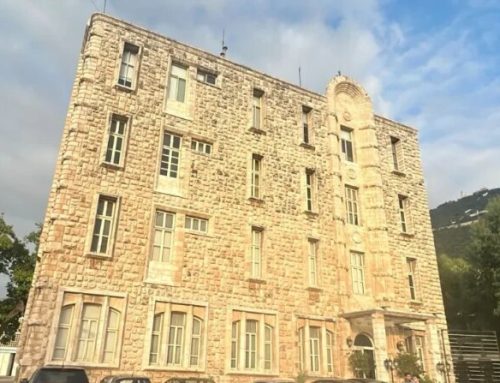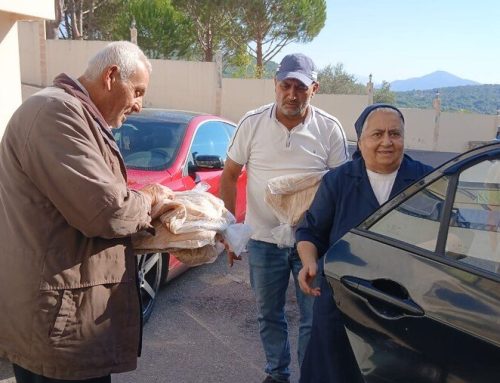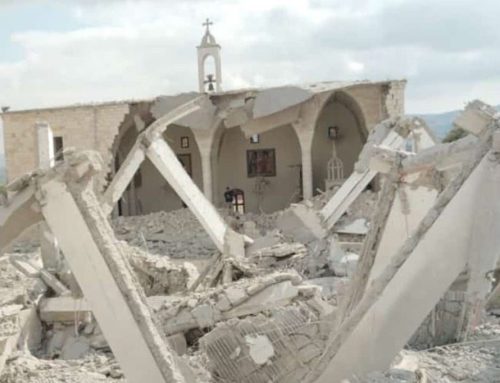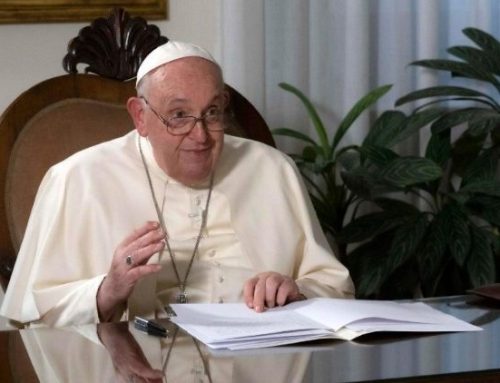The other day a group of American university students visited Bethlehem University in Bethlehem of the nativity fame in the Palestinian Territories. They discussed with their Palestinian peers a number of issues, including mutual perceptions or misperceptions, the stand of the American Administration on the Arab-Israeli conflict, the situation in Iraq and the upcoming presidential elections in Palestine. After the formal discussions were over, the American and Palestinian students mingled, exchanged e-mail addresses and promised to continue with their discussions.
by Dr. Bernard Sabella
Bethlehem University
The other day a group of American university students visited Bethlehem University in Bethlehem of the nativity fame in the Palestinian Territories. They discussed with their Palestinian peers a number of issues, including mutual perceptions or misperceptions, the stand of the American Administration on the Arab-Israeli conflict, the situation in Iraq and the upcoming presidential elections in Palestine. After the formal discussions were over, the American and Palestinian students mingled, exchanged e-mail addresses and promised to continue with their discussions.
On Manger Square, the American students had two pleasant surprises: the first was shaking hands with the Roman Catholic Palestinian Mayor of Bethlehem, Mr. Hanna Nasser, as he was coming out from the Church of the Nativity accompanying a pilgrim group on one of these rare visits of pilgrim groups to the town in recent years. When the students asked him his wishes for Christmas, his response was that his wishes were the wishes of the people of Bethlehem: Peace for Bethlehem that would bring in more pilgrims and Peace for Palestine that would bring stability and eventual reconciliation. The second surprise came as the group continued towards the entrance of the Church of the Nativity where a correspondent of an international American news agency asked them for an interview. The correspondent was interested to know how they happened to be in Bethlehem and whether they felt afraid being in the Palestinian Territories. The students explained to her that they have just met with Palestinian students at Bethlehem University and that they have found them very friendly, warm and hospitable. In fact, a couple of students mentioned that they were encouraging their parents to come and spend Christmas and the New Year in Bethlehem. Were they afraid of terrorism? She asked. Absolutely not, was the answer as the correspondent jotted down the names and addresses of the students. In fact, a couple of students commented that they would be more afraid of crime and other forms of violence in their own towns and cities in the US than here in Bethlehem.
At the Saint Jerome Grotto or Cave inside the Church of the Nativity, where in the fourth century Saint Jerome, a monk and hermit, worked for over thirty years translating the Bible into the Latin Vulgate translation which is still in use, the guide was referring to the story of “no place at the inn” that is associated with the birth story of Jesus of Nazareth. She was insisting that since Mary and Joseph originally hailed from Bethlehem, there was no need for them to look for a place at the inn. Family would have taken care of them as families in Bethlehem and in other parts of Palestine would take care of their kin today if they would come back for a short visit or a long stay. In fact, and perhaps because she wanted to prove her point further, the guide was saying that if you, strangers, would walk now through the streets of Bethlehem and nearby Beit Jala and Beit Sahour, where the shepherds were first alerted to the imminent birth of the divine babe, people would greet you and ask you in. So how much more hospitable would they be with close kin and family? The group was left with the impression that possibly the families and kin of Joseph and Mary must have left the little town of Bethlehem; otherwise there was no need for the couple to look for a place at the inn.
As the students concluded their visit with a traditional Palestinian dish of Hummous and Falafel at a small cramped restaurant on Manger Square, they reflected that they would have liked to stay more time in Bethlehem engaging their Palestinian peers. They were especially appreciative of the resilience and determination of the students at Bethlehem University to keep on with their studies in spite of everything. Most important they felt that the people in Bethlehem reminded them of people back home who wanted to lead their lives in peace and tranquility. Would they come back again to Bethlehem? Definately, to cement new friendships and to explore common areas of interest that unite people. Most impressive was the almost similar response of a Palestinian and an American student on the visit: they are so much like us, aren’t they?





